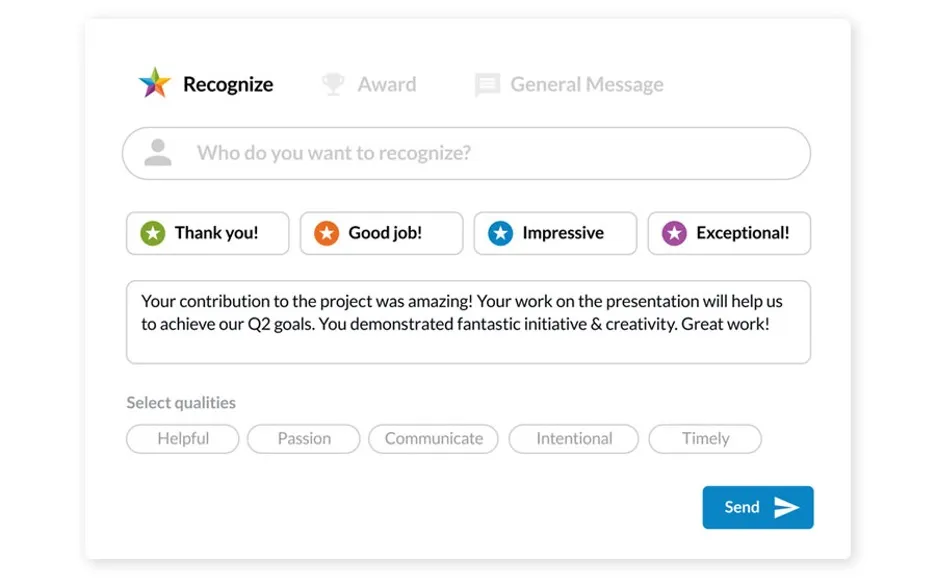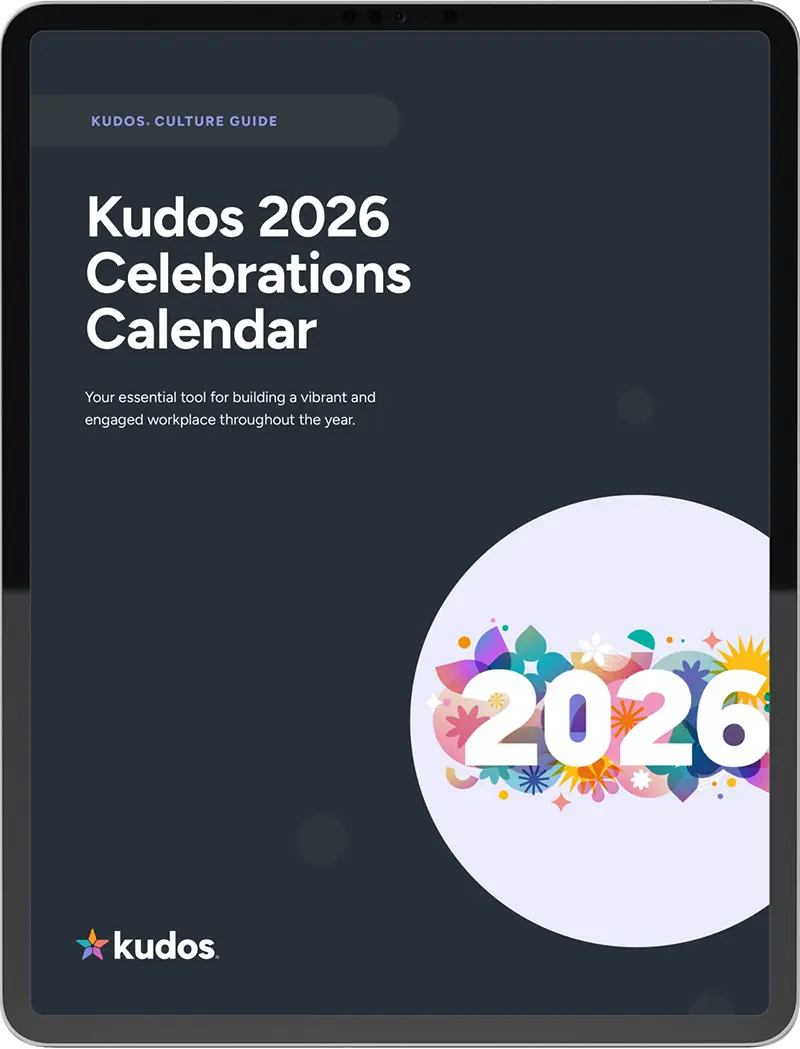Why Nomination Programs Aren’t Enough
Recognition
October 23, 2024
Taryn Hart
X min
Recognition
October 23, 2024
Taryn Hart
X min

A nomination is an official endorsement for someone to receive an award or prize. The first step in a nomination program is for the organization to determine and communicate the criteria for their program. Employees can then nominate colleagues they feel meet the criteria, with one nominee being selected as the final winner. Some organizations have employee nomination programs for awards like “Employee of the Month,” “Most Hard Working,” “Most Innovative,” and so on. While nomination programs seem like a simple solution to employee recognition, they need to work in conjunction with a more robust suite of tools to deliver results.
Traditional employee nomination programs give employees an opportunity to tell a story about their peer’s accomplishments, and how they impact the business. Nominations can bring acknowledgement of standout achievements in a workplace where they may otherwise go unnoticed, especially by outside members of that team. They can bean opportunity to communicate expectations, or curate awards and prizes that tie-in your company values. Nominations can also deliver a morale boost, especially for those employees who win.
Nomination programs are not without their challenges. Why only allow employees to give recognition whenever there’s an award involved? These types of programs are only one piece to a complete solution. No need to abandon your nomination program altogether, but simply include it in a deeper, more impactful employee recognition strategy.
For employee recognition to be effective at motivating and communicating the value individuals offer your organization, it needs to be consistent and meaningful. Nomination programs are often monthly, quarterly, or yearlong initiatives; your employees are not being nominated frequently enough to create lasting meaning. When you nominate someone for an award, you’re not directly recognizing them for their work — you’re only giving them a chance at recognition. If someone deserves recognition, they should receive it day-to-day.
When you nominate employees for an award or prize, you compare their accomplishments to someone else’s instead of celebrating and appreciating their work individually. While being nominated is considered recognition, it can cause unhealthy competition and resentment between employees. Your employees deserve to be recognized constantly, not only when an award is up for grabs.
Nomination programs build a barrier between you and the wider benefits of recognition. When your organization partakes in a nomination program, it’s usually comprised of certain award categories, which over time can become disassociated from what employees are working on or dealing with. If an organization implements an Employee of the Month program, only 12 employees will receive that recognition in a year. Also, these programs only focus on one person winning something atone time; why limit employee recognition to just one person? Recognizing teamwork or collaboration amongst a group of people is just as important as recognizing an individual.
Using an employee recognition platform will allow your employees to be recognized regularly. Platforms like Kudos allow employees and leaders the freedom to recognize anyone, for anything, at any time. Adding a peer-to-peer recognition program to your strategy offers a more consistent and accessible motivational experience. Enabling all your employees to recognize impactful moments regularly, timely, and specifically ensures that recipients know the value they bring to the organization. No matter how small the achievement is, peer-to-peer recognition has a better overall impact on improving employee morale and engagement.

A recent Forbes study found that 66% of employees will leave their jobs because they do not feel appreciated. A strong company culture is an increasingly crucial factor for employees, and a recognition solution builds an impactful company culture where employees feel recognized and appreciated.
An employee recognition platform does not mean leaders can no longer create employee awards or prizes, but they shouldn’t take away the chance for peers or leaders to give and receive constant recognition. Offering more nomination options by building levels of nominations with high-level prestigious, and quarterly or monthly nominations can still exist, but should be supported by regular recognition. Add more social or community nominations that bring creativity and fun to your employee recognition solution, instead of focusing on traditional nominations centered around recognizing select employees. Nominate employees for awards like “Most Likely to Be Late for a Meeting," or “MostCreative Zoom Background” and have them for entertainment or enjoyment purposes instead of just performance.
Nomination programs are a small piece to a bigger solution. Giving regular recognition should become a habit within your organization and should be used as a building block to help retain talent, form healthier work relationships, and strengthen company culture.
We know that selecting the best recognition solution for your organization can be challenging, so we’ve made it simple for you with our Employee Recognition Buyer’s Guide. Our guide gives a comprehensive overview of how to choose the right employee recognition solution for your company’s culture, goals, and budget. Remember that consistent and authentic employee recognition should always be the priority, and the awards and prizes should come secondary.

A newsletter with the best resources for HR professionals.


Your essential tool for building a vibrant and engaged workplace throughout the year.
Get Your Guide